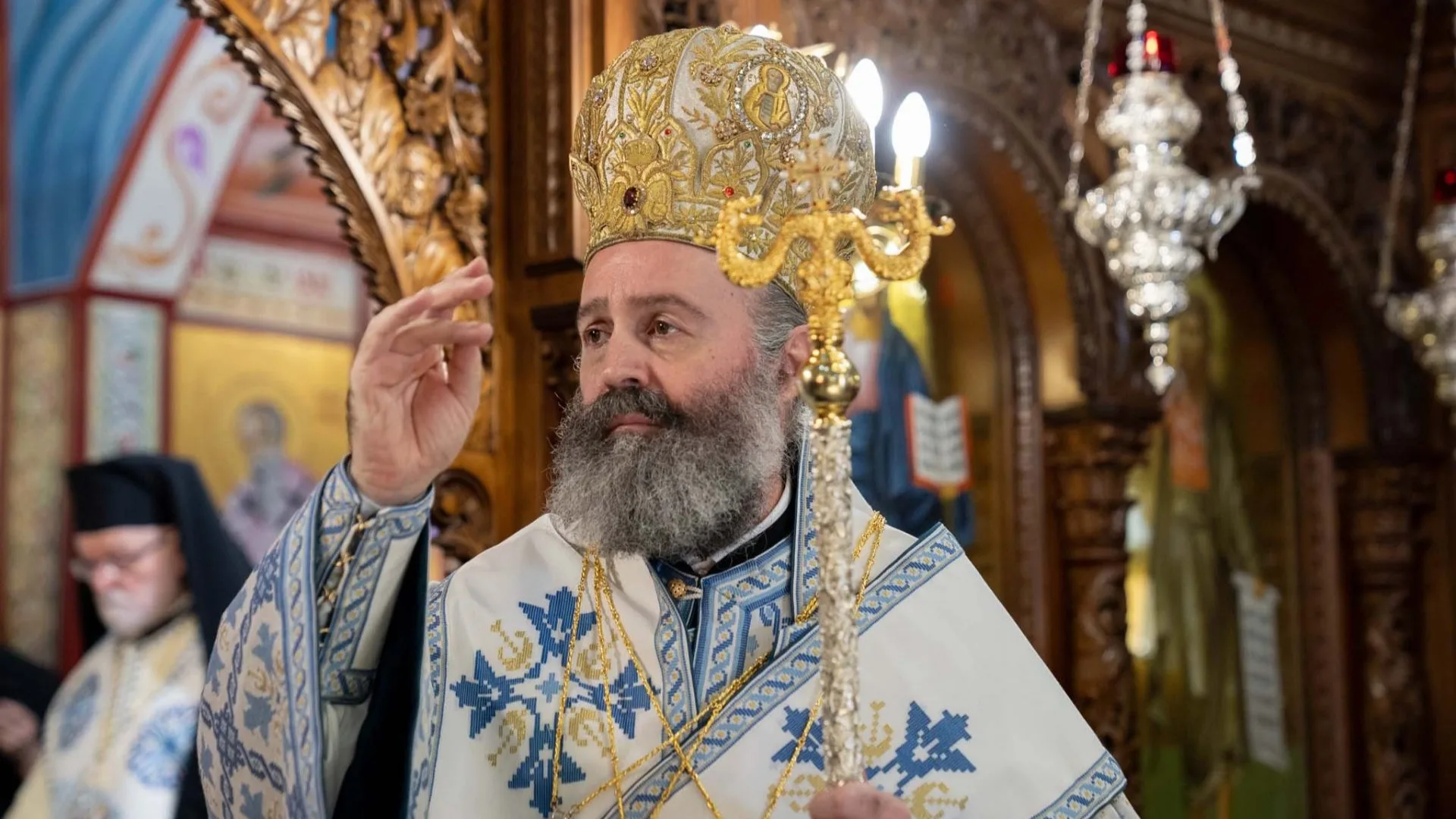On the occasion of the Feast of the Dormition of the Theotokos, His Eminence Archbishop Makarios of Australia has shared a message reflecting on the life, humility, and eternal example of the Virgin Mary.
In his message, the Archbishop calls the faithful to draw inspiration from her unwavering devotion to God and to embrace a life oriented toward eternity, rather than worldly attachments.
Full message in English:
With ineffable joy, “in psalms and hymns and spiritual songs, together with the Bodiless Powers and the Apostles, keeping festival with gladness,”[1] our devout people today celebrate the revered Dormition and Translation of the All-Immaculate Theotokos. We celebrate rather than mourn, for She “who bore Life,”[2] three days after Her Dormition, “was translated unto life.”[3] We celebrate—contrary to worldly conceptions concerning death—because, for our Panagia, death became “a passage to superior and everlasting life.”[4]
She who, at Her Annunciation, initiated “the crowning moment of our salvation,”[5] after Her Dormition and Translation, was deemed worthy to enter—first among the human race—into the heavenly Kingdom of God. Since then, in Her sacred person, we behold both the loving Mother who unceasingly intercedes on our behalf before the Triune God, and a radiant signpost reminding us of our eschatological destiny and directing us towards it. For the present life, however precious it may be, remains above all a preparation for the life to come—“the superior and everlasting” life.
The life of the Most Holy Theotokos and Ever-Virgin Mary is the clearest image of an earthly life that leads into eternity. From her youth she was an example of obedience to the will of God. She never concerned herself with worldly glories or honours. With modesty and humility she stood beside her Son. She remained just as humble after His Ascension, never seeking dignities or positions of leadership, until the day of her Dormition. Even then, when the angel of the Lord announced to her that the hour was drawing near for her to depart from the things of earth, she accepted it with humility and silence—without being troubled, without displeasure, without denial or resistance. In other words, the Most Holy Theotokos lived with a heart wholly fixed on God and with her expectation directed towards the unending eternity.
In our age—an age which presents as a model for life the attachment to material goods, to worldly cares, and to fleeting pleasures—the Most Holy Theotokos stands before us as the unerring sign that all these things are perishable, vain, and transient. She proclaims to us the resounding message that whatever is attached to the earth perishes with it, whereas whatever is attached to Christ has as its destination heaven, and abides unto the ages.
Let us keep this hope-filled message in our hearts, so that—through the intercessions of our Panagia—we may not stray from our true destiny but may be found worthy to enter into the Kingdom of Heaven, where “there is no pain, nor sorrow, nor sighing, but life everlasting.”
Many years and blessings to all!
[1] Idiomelon of the Litany during the Vespers of the Feast Day of the Dormition of the Theotokos, Tone 3.
[2] Lauds of the Feast of the Dormition of the Theotokos, Tone 4.
[3] Dismissal Hymn of the Dormition of the Theotokos, Tone 1.
[4] From the 1st Canon, Ode 4, of the Feast of the Dormition of the Theotokos, Tone 1.
[5] Dismissal Hymn of the Feast Day of the Annunciation of the Theotokos, Tone 4.
